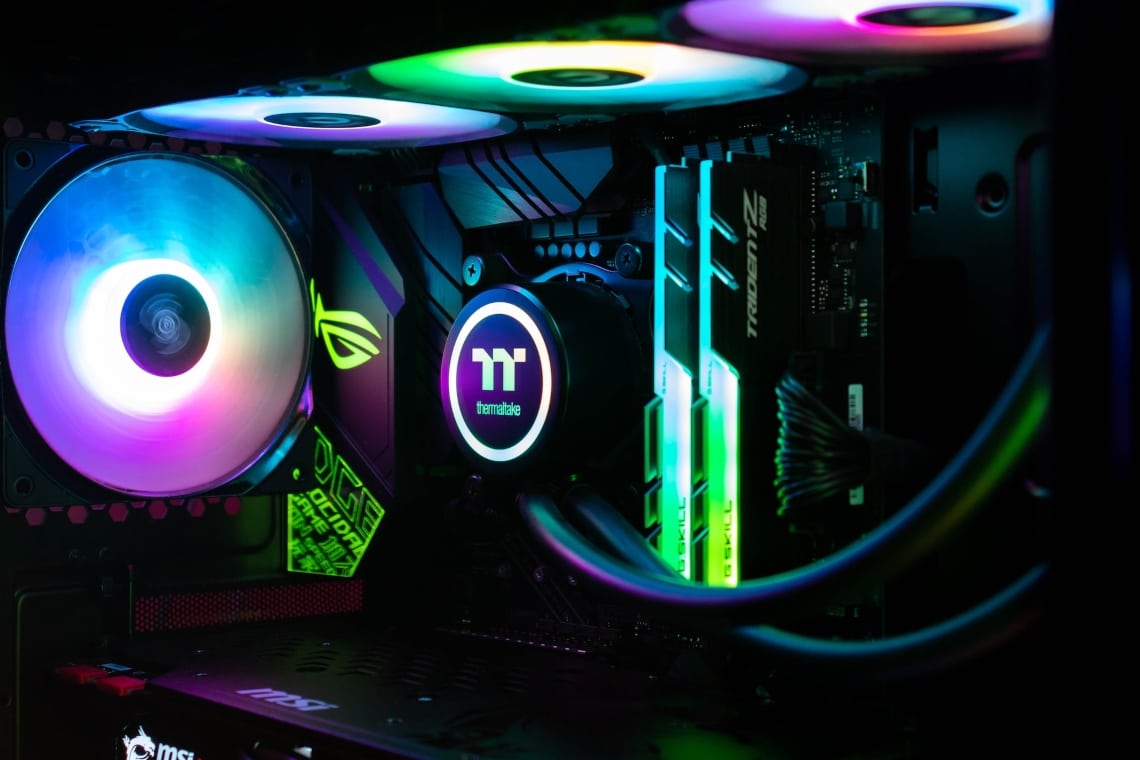At the annual COMPUTEX 2023 trade show held on Sunday, technology giant Nvidia unveiled the hidden potential in harnessing AI (Artificial Intelligence) in games.
Below are all the details.
Summary
NVIDIA Avatar Cloud Engine: advances in AI
During a packed keynote presentation at the annual COMPUTEX 2023 trade show, NVIDIA showed an impressive demo of its avatar cloud engine, called the NVIDIA Avatar Cloud Engine (ACE), which offers a glimpse into the future of next-generation game worlds and non-player characters (NPCs).
Specifically, the demo highlighted the potential of using artificial intelligence in games, and was projected on a large screen, capturing the audience’s attention.
Nvidia CEO Jensen Huang stated the following in public:
“This is the future of video games. Not only will the AI help render and synthesise the environment, but it will also animate the characters.”
During the demo, a fascinating AI-generated scenario was presented: a ramen store in an atmospheric cyberpunk world.
Behind the counter of the store was a non-player character (NPC) who interacted with the player, creating an immersive and realistic experience.
In fact, Huang stated:
“Because this character has been imbued with artificial intelligence and large speech patterns, he can understand your meaning and interact with you in a really reasonable way. All facial animation is completely done by artificial intelligence. We made it possible to spawn all kinds of characters.”
Furthermore, in the post announcing NVIDIA ACE, the company described it word-for-word:
“Custom AI model foundry service that aims to transform games by bringing intelligence to NPCs through AI-powered natural language interactions.”
Nvidia collaborated with Convai, a Melbourne-based company specializing in automated intelligent conversation systems, to develop the engine.
This engine integrates NVIDIA’s NeMo, Riva and Omniverse Audio2Face services, offering the ability to customize NPC environments and personalities, facilitating real-time voice conversations with NPCs and generating facial animations based on audio input.
Nvidia’s market capitalization reacts positively to the news
Based on the latest developments, we see that, on Tuesday, Nvidia’s market capitalization reached $963 billion, surpassing Berkshire Hathaway with $700 billion, Meta with $671 billion, and Tesla with $612 billion.
In addition, Nvidia’s shares rose sharply after the release of its Q1 2023 report, which showed a 19% increase in revenue over the previous quarter, exceeding expectations.
Although the dialogue uttered by the NPC in Nvidia’s demo was still artificial and somewhat robotic, it still represents a first step toward creating potentially richer and more dynamic game characters in the future.
In addition, artificial intelligence has the potential to make world and character development faster and easier.
What are the other companies that will use AI for their projects?
Other giants in the video game industry that are exploring the potential of artificial intelligence include Blizzard Entertainment and Ubisoft, which have started experiments in the area of game development.
Specifically, in March, Ubisoft announced the launch of Ghostwriter AI, a tool their studio will use to generate early drafts of NPC dialogue in games. In a press release, Ben Swanson, the creator of Ghostwriter as well as a researcher and scientist at Ubisoft La Forge, said the following:
“Rather than writing first drafts themselves, Ghostwriter allows writers to select and refine the generated samples.”
According to reports in the New York Times in April, Blizzard announced via email that the development team responsible for the Diablo and World of Warcraft series would integrate artificial intelligence into the design of NPCs.
In fact, on Twitter, Blizzard President Mike Ybarra said:
“Our approach at Blizzard is to use machine learning and artificial intelligence in ways that are additive, empathetic, and allow our talented teams to spend more time on the highest quality thinking and creative pursuits.”
Not only that, even the Metaverse Oncyber platform has already introduced an option that allows users to create and customize content in 3D environments through the use of written instructions, building on OpenAI‘s GPT model.
Likewise, Meta executives expressed their belief that artificial intelligence will play a key role in the evolution of their plans for the metaverse, the social media giant’s ambitious project.




